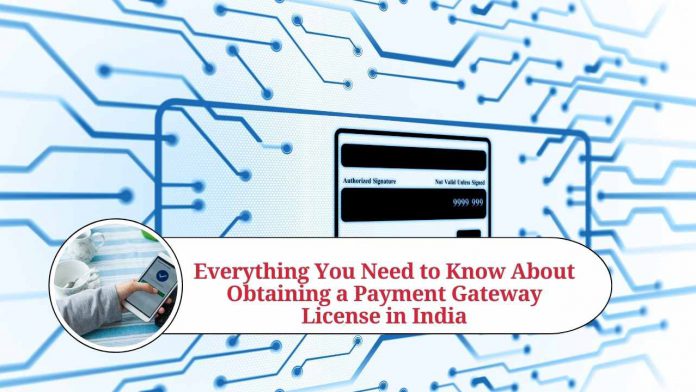Payment Gateway License: Everything You Need to Know
If you’re planning to start an online business, it’s important to understand the legal requirements involved in accepting payments from your customers. One such requirement is obtaining a payment gateway license. In this blog post, we’ll discuss what a payment gateway license is, why it’s important, and how you can obtain one.
What is a Payment Gateway License?
A payment gateway license is a legal authorization that allows a business to accept online payments from customers using credit cards, debit cards, net banking, or any other digital payment mode. The license is issued by the Reserve Bank of India (RBI) and is mandatory for businesses that wish to operate an online payment gateway in India.
Why is a Payment Gateway License Important?
There are several reasons why a payment gateway license is important for businesses that accept online payments. Firstly, it ensures that the business is compliant with the regulations set by the RBI. Non-compliance can result in fines, penalties, and even the suspension of the payment gateway.
Secondly, a payment gateway license provides a sense of security to customers who make online payments. It assures them that their personal and financial information is being handled by a legitimate and trustworthy payment gateway.
Lastly, having a payment gateway license allows businesses to offer a wider range of payment options to their customers, which can help increase sales and customer satisfaction.
How to Obtain a Payment Gateway License?
Obtaining a payment gateway license involves several steps, including:
- Registering Your Business: Before you can apply for a payment gateway license, you must first register your business with the Registrar of Companies (ROC) and obtain a certificate of incorporation.
- Setting Up Your Payment Gateway: You’ll need to set up your payment gateway with a payment service provider (PSP) that is approved by the RBI. The PSP will provide you with the necessary technology and infrastructure to process online payments.
- Meeting the Eligibility Criteria: To obtain a payment gateway license, your business must meet certain eligibility criteria, such as having a minimum net worth, complying with anti-money laundering (AML) guidelines, and having a sound financial track record.
- Applying for the License: Once you’ve met the eligibility criteria, you can apply for a payment gateway license by submitting an application to the RBI. The application must include details such as your business profile, the technology used for your payment gateway, and your financial track record.
- Obtaining Approval: The RBI will review your application and may request additional information or documentation before approving your payment gateway license. Once approved, you’ll receive a license number that you can use to operate your payment gateway.
Additional Information on Payment Gateway License:
In addition to the steps mentioned above, there are a few more things to keep in mind when obtaining a payment gateway license:
- Renewal: Payment gateway licenses are typically valid for a period of 3 years, after which they need to be renewed. It’s important to keep track of the renewal date and apply for renewal well in advance to avoid any disruptions in payment processing.
- Fees: There is a fee associated with obtaining a payment gateway license, which varies depending on the PSP you choose and the services you require. Make sure to factor in these costs when budgeting for your business.
- Compliance: Once you have obtained a payment gateway license, it’s important to continue to comply with the regulations set by the RBI. Failure to do so can result in fines, penalties, and even the revocation of your license.
- Integration: After obtaining a payment gateway license, you’ll need to integrate the payment gateway with your website or app. This involves working with your PSP to set up the necessary APIs and plugins to ensure seamless payment processing.
- Security: It’s important to ensure that your payment gateway is secure and meets the requirements set by the Payment Card Industry Data Security Standard (PCI DSS). This involves implementing security measures such as encryption, tokenization, and multi-factor authentication to protect customer data and prevent fraud.
Conclusion
Obtaining a payment gateway license can seem daunting, but it’s an essential step for any business that wishes to accept online payments. By following the steps outlined above and staying up-to-date with compliance regulations, you can ensure that your payment gateway is secure, reliable, and trusted by your customers.
Read more useful content:
Frequently Asked Questions (FAQs)
What is a payment gateway license?
A payment gateway license is a legal authorization issued by the Reserve Bank of India (RBI) that allows businesses to accept online payments from customers using credit cards, debit cards, net banking, or any other digital payment mode.
Is a payment gateway license mandatory?
Yes, a payment gateway license is mandatory for businesses that wish to operate an online payment gateway in India.
What are the eligibility criteria for obtaining a payment gateway license?
To obtain a payment gateway license, your business must meet certain eligibility criteria, such as having a minimum net worth, complying with anti-money laundering (AML) guidelines, and having a sound financial track record.
How long does it take to obtain a payment gateway license?
The time it takes to obtain a payment gateway license can vary depending on the complexity of your application and the time taken by the RBI to process it. It typically takes 4-6 weeks to obtain a payment gateway license.
Can I use any payment service provider (PSP) to obtain a payment gateway license?
No, you must use a PSP that is approved by the RBI to obtain a payment gateway license.
How much does it cost to obtain a payment gateway license?
The cost of obtaining a payment gateway license varies depending on the PSP you choose and the services you require. Make sure to factor in these costs when budgeting for your business.
Do I need to renew my payment gateway license?
Yes, payment gateway licenses are typically valid for a period of 3 years, after which they need to be renewed.
What happens if I don’t obtain a payment gateway license?
Non-compliance with RBI regulations can result in fines, penalties, and even the suspension of the payment gateway.
How do I integrate my payment gateway with my website or app?
After obtaining a payment gateway license, you’ll need to work with your PSP to set up the necessary APIs and plugins to ensure seamless payment processing.
How can I ensure the security of my payment gateway?
It’s important to ensure that your payment gateway is secure and meets the requirements set by the Payment Card Industry Data Security Standard (PCI DSS). This involves implementing security measures such as encryption, tokenization, and multi-factor authentication to protect customer data and prevent fraud.




















